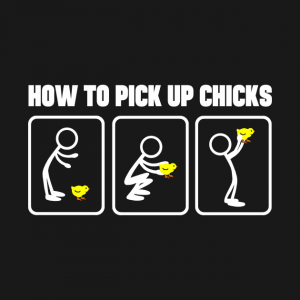“Why did the chicken cross the road?”
“To get to the other side- of course!”
September is National Chicken Month! In honor of this month here are some interesting chicken facts as well as a few things to keep in mind when raising them.
History of National Chicken Month
The broiler industry began in the late 1920’s and grew steadily, getting a big boost from wartime demand in the 1940’s. By the 1950’s, however, the industry was in a slump and little was being done to build consumer demand for its products. The wholesale price of broilers dropped to twenty-two cents per pound in 1954.”The National Chicken Council was first established in 1954 in Richmond, Virginia, as the National Broiler Council. NCC headquarters moved to the nation’s capital in 1965 and the new name, National Chicken Council, was adopted in 1999, to better describe the industry and its products.”
Chicken Facts
- The scientific name for a chicken is Gallus gallus domesticus.
- The largest hen egg was a five-yolked egg measuring 31cm (12.2in) around the long axis, 22.8cm (9in) around the short and weighing nearly 340g (12oz). It was laid by a Black Minorca at in 1896.
- A study done in 2003 estimated that there were over 25 billion chickens in the world. Not only do chickens outnumber people more than 3 to 1, but there are more chickens than any other kind of bird in the world.
- The earliest known printing of the classic joke, “Why did the chicken cross the road?” was in 1847, in The Knickerbocker, a New York monthly magazine. The magazine labeled it in the category of “quips and quillets” because of its simple answer.
- The color of a hen’s egg is determined by the breed of chicken—and the color of their earlobes! Chickens with red earlobes will lay brown eggs, and chickens with white earlobes will lay white eggs.
- According to the Poultry in New York Crop File, the state ranks 18 in chickens and 21 in egg production with 986 million eggs. Also, the New York poultry industry produces approximately $86 million worth of processed poultry products that are sold in New York and around the world; 86% of this revenue comes from the egg industry.
Things to Keep in Mind When Raising Chickens
- Before you buy your coop and chickens, check with your city ordinances to see if your town has any restrictions.
- Chickens, too, need fresh water at all times. There are a variety of waterers for chicks and chickens, and will depend on your size flock as to what kind of waterer you’ll need. With larger flocks it’s convenient to have a 3-5 gallon waterer that automatically refills the watering tray. If you live in a cooler climate, you might want to invest in a heated waterer or a heated mat. Regardless what kind of waterer you choose, make sure it is easy to clean.
- Make sure you are feeding your birds the proper feed; your meat birds will have a different diet than your layers. Chickens can also eat your vegetarian food scraps. Unfortunate for your compost pile, but the chickens love fresh food and garden scraps. Some chicken farmers offer oyster shells for their chickens because they are rich in calcium which make for harder eggshells.
- Hawks, owls, skunks, foxes, coyotes, raccoons, and dogs are common chicken predators. While coyotes may not be common in your neighborhood, dogs and raccoons can easily sneak into the backyard and kill chickens. A coop needs to be secure to keep these predators out or provide a place for chickens to escape. This safe place could be underneath the coop, which provides shelter from overhead, or a raised coop off the ground on a frame offers protection from animals that approach low, like dogs and skunks. Besides protection from predators, the coop should give adequate shelter from the elements.
- The coop will need light because chickens lay based on daylight. On shorter winter days chickens often slow down or don’t lay eggs at all. To lengthen the daylight hours hang a light in the coop or make sure the coop has windows to allow daylight in.
If you would like more information regarding chicks (where to purchase, where to have them processed, information on raising, etc.) contact Kayela at our office: kls342@cornell.edu or contact your local extension office.
Sources:
https://www.nationalchickencouncil.org/about-ncc/history/
https://www.cleanairgardening.com/ultimate-guide-to-raising-backyard-chickens/
http://www.cherrycrestfarm.com/The-Amazing-Fun-Time-Blog/10-Interesting-Facts-About-Chickens/
https://www.telegraph.co.uk/news/newstopics/howaboutthat/7309852/Hen-lays-giant-egg.html


